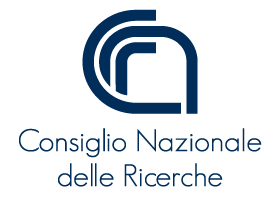Se la forte presenza del legislatore europeo nel campo della sicurezza degli alimenti lascia poco spazio di autonomia ai livelli statale e regionale, non altrettanto può dirsi in riferimento alla tutela della qualità alimentare. Le autorità pubbliche nazionali, infatti, possono dar vita a sistemi di valorizzazione e tutela della qualità degli alimenti, alternativi e complementari rispetto a quelli UE (regolamento n. 1151/2012). Trattandosi di regimi di certificazione sostenuti da organismi pubblici, però, essi non possono «comportare restrizioni basate sull’origine nazionale dei produttori od ostacolare altrimenti il mercato unico». A partire da tali considerazioni, il presente Paper approfondisce il tema della compatibilità con il diritto UE di regimi nazionali e/o regionali, come quelli istitutivi di marchi pubblici territoriali e geografici, che abbiano come obiettivo la valorizzazione della tipicità e della territorialità di un prodotto alimentare. Il Paper, in particolare, dopo aver brevemente ricostruito le vicende che hanno portato all’abolizione, in diversi Stati membri, di numerosi marchi nazionali e regionali di origine, si concentra sulle posizioni più recenti espresse dalla Commissione europea e dalla Corte di Giustizia al riguardo e sulle caratteristiche dei marchi regionali considerati compatibili con il diritto UE. Infine, prendendo ad esempio l’Italia, il Paper descrive alcune esperienze regionali di marchi di qualità e cerca di riflettere sulla difficoltà di individuare una via che bilanci correttamente le esigenze di tutela dei produttori e dei consumatori con quelle di libera circolazione delle merci.
The strong action of European legislator in the field of food safety leaves only a small space of autonomy to the national and regional levels. The same cannot be said for the protection of food quality. Indeed, National authorities can create food quality promotion and protection systems, alternative and complementary to those of the European Union (Regulation No. 1151/2012). But, being managed by public bodies, the national certification schemes cannot entail restrictions based on the national origin of producers or otherwise impede the single market. Moving from these considerations, this paper deepens the issue of compatibility between European law and national and regional schemes for the promotion of typical and local food products, such as those that introduce public geographic trademarks with the aim of highlighting the typicality of the product or specific features linked to its place of origin. After a brief overview of the events that led Member States to repeal many national and regional laws establishing origin trademarks this Paper focuses on the recent positions of the European Commission and of the Court of Justice on this issue and on the characteristics of regional marks and labels considered to be compatible with EU law. Finally, taking Italy as example, this paper describes some regional quality labels and focuses on the difficulties in finding solutions that strike a balance between the needs of producers and consumers and the principle of the free movement of goods.


